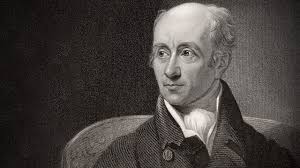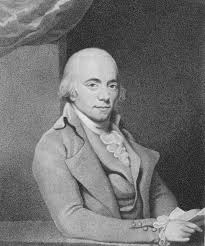Muzio Clementi, an Italian composer, pianist, and conductor, left an indelible mark on the classical music landscape of the late 18th and early 19th centuries. Born on January 23, 1752, in Rome, Clementi’s musical talents emerged at an early age. His father recognized his son’s aptitude and ensured he received quality musical education, leading him to study under several renowned composers and musicians in Italy.
Clementi’s proficiency on the keyboard quickly became evident, and by his teenage years, he was renowned as a virtuoso pianist. At the age of just fourteen, he attracted the attention of Sir Peter Beckford, a wealthy Englishman, who became his patron and facilitated his move to England. This marked the beginning of Clementi’s international career.
- Musical Prodigy: Muzio Clementi was born on January 23, 1752, in Rome, Italy. From an early age, he displayed extraordinary musical talent, showing proficiency in keyboard instruments like the harpsichord and the organ.
- Meeting Mozart: Clementi’s musical journey took an unexpected turn when he met Wolfgang Amadeus Mozart in 1770. Their meeting led to a memorable musical duel in which Clementi showcased his virtuosity on the piano. This encounter left a lasting impression on both musicians and led to a mutual respect between them.
- Piano Innovator: Clementi is often referred to as the “Father of the Piano” for his significant contributions to the development of the instrument. He played a crucial role in expanding the piano’s range, dynamics, and expressive capabilities, helping to shape its modern form.
- Entrepreneurial Spirit: Beyond his prowess as a composer and performer, Clementi was also a savvy businessman. He established himself as a successful music publisher and piano manufacturer, contributing to the popularization of the instrument across Europe.
- Sonata Maestro: Clementi’s compositional output includes a vast array of piano sonatas, which remain central to the classical piano repertoire. His sonatas are characterized by their technical demands, expressive melodies, and innovative use of form, showcasing his mastery of the instrument.
- Influence on Beethoven: Clementi’s impact extended beyond his contemporaries, influencing future generations of composers, most notably Ludwig van Beethoven. Beethoven held Clementi in high regard and even performed his works during his early years in Vienna.
- Pedagogical Legacy: Clementi’s influence on music education is profound. He wrote a series of progressive piano studies known as the “Gradus ad Parnassum,” which are still used today to develop pianists’ technique and musicality.
- Royal Appointment: In 1816, Clementi received a prestigious appointment as the official pianist to Queen Charlotte of England. This position further solidified his reputation as one of the leading musicians of his time and granted him access to influential circles in society.
- Multifaceted Composer: While Clementi is best known for his piano compositions, he also wrote symphonies, chamber music, and choral works. His diverse output demonstrates his versatility as a composer and his ability to excel in various musical genres.
- Lasting Legacy: Muzio Clementi’s contributions to classical music continue to be celebrated today. His innovative approach to composition and piano performance, coupled with his entrepreneurial spirit and pedagogical legacy, ensure that his influence endures through the ages.


Comments are closed